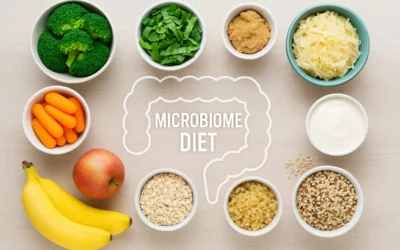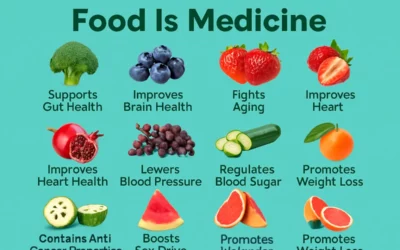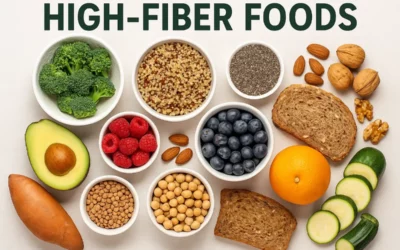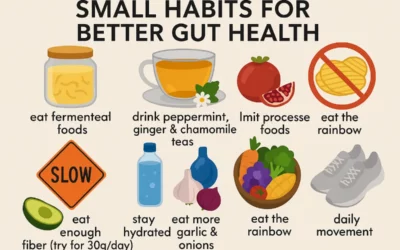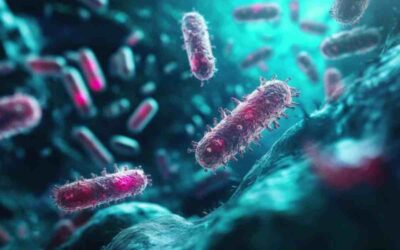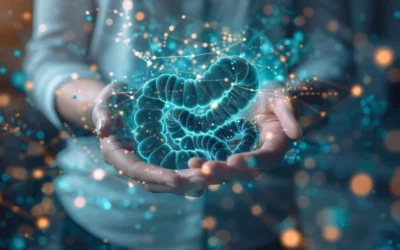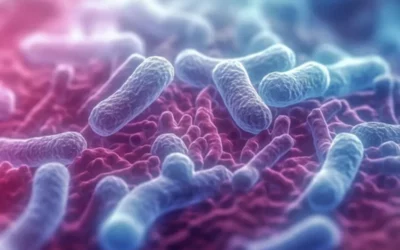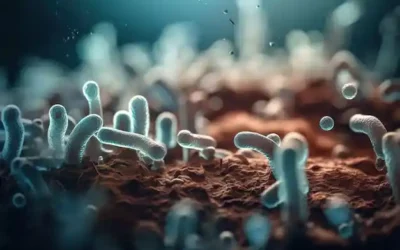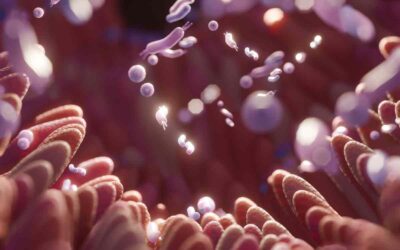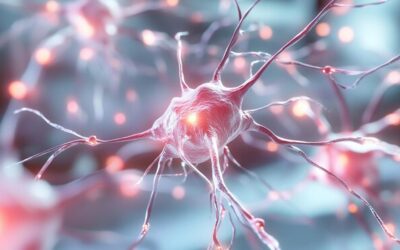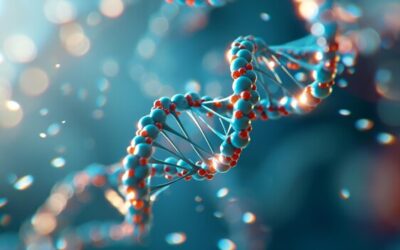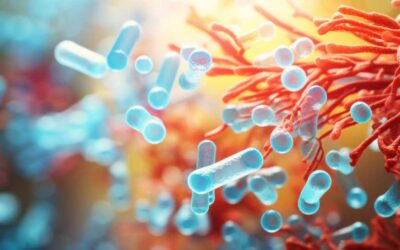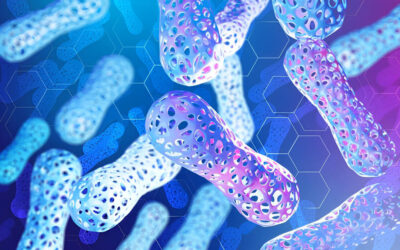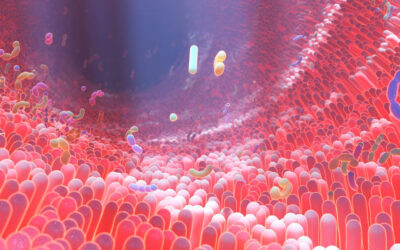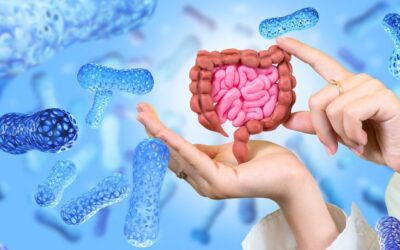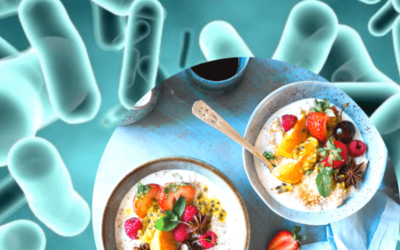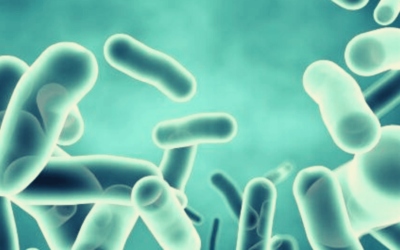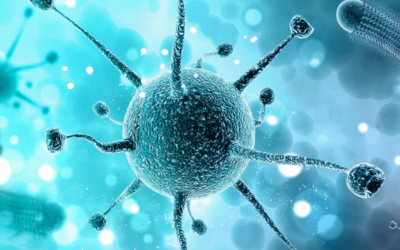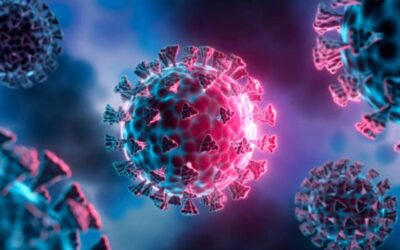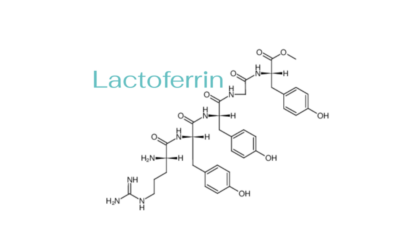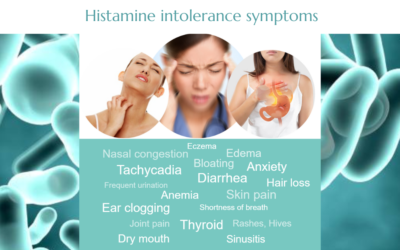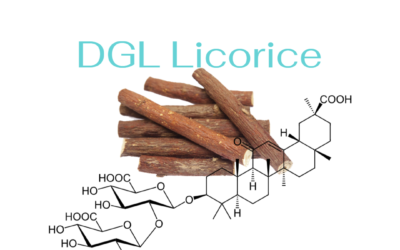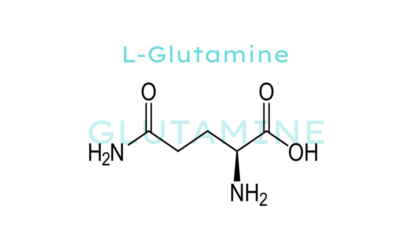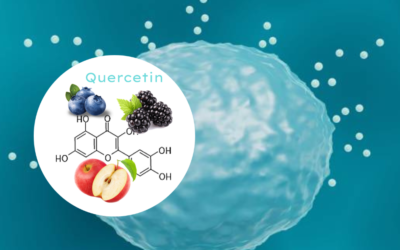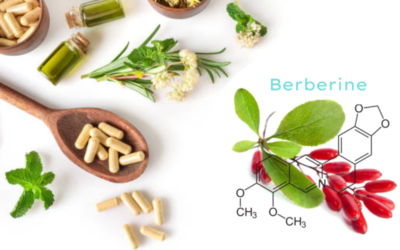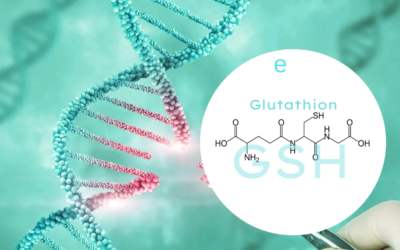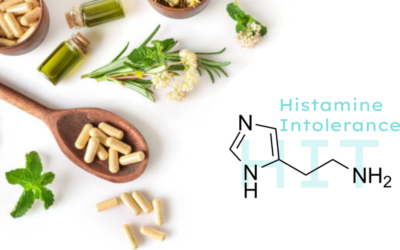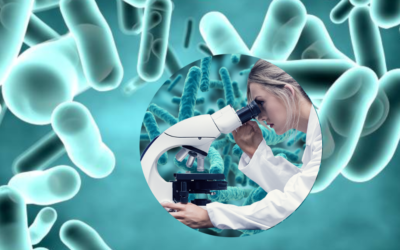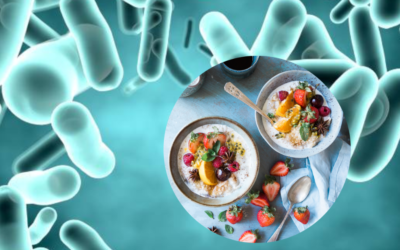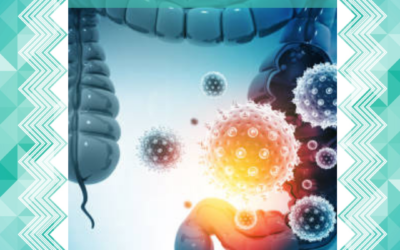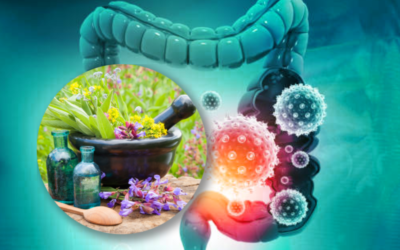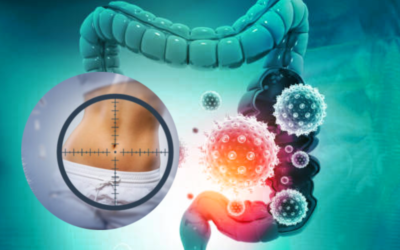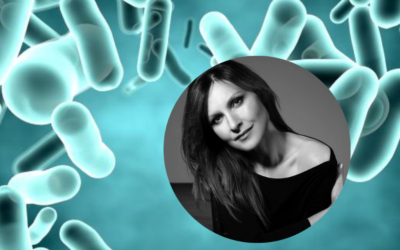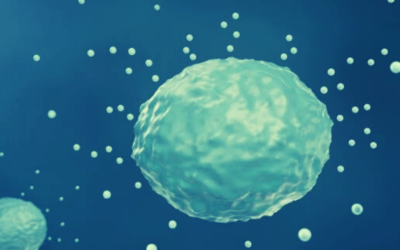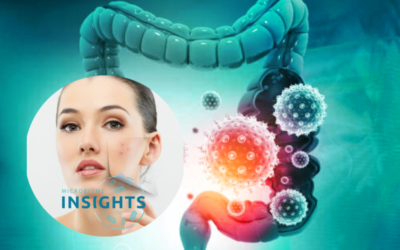
Gut healing...the origin of health
Intestinal health is essential. If you have problems with your gut, it can often cause serious problems. A stubborn SIBO, not to mention more severe abdominal issues, can even cause histamine intolerance or autoimmune diseases in the long run. It is important to look for what can be behind the problem if you have abdominal discomfort. If you are persistent, you will surely find your way to healing. The materials on the site will help you with this.
Microbiome Diet – Everything You Need to Know
Your body is home to trillions of microorganisms—bacteria, fungi, viruses, and even parasites. Collectively, they form what scientists call the microbiome. Most of these microbes live in your gut, especially in the large intestine, and play a fundamental role in...
What is Nutrigenomics? How Your Genes Affect Your Diet
Understanding the power of nutrition tailored to your genes. Imagine a world where your diet isn’t based on general advice, but on your unique genetic blueprint. What if you could optimize your energy levels, improve your digestion, and reduce your risk of chronic...
Food Is Natural Medicine: How Fruits Naturally Heal Your Body
The idea that “food is natural medicine” isn’t just a popular wellness quote—it’s a principle backed by science. The nutrients in whole foods have the power to support healing, reduce disease risk, and promote optimal body function. And when it comes to fruits, nature...
Fiber For Gut Health: How to Feel Better Every Day
Fiber is one of the most essential yet underrated components of a healthy diet. From improving digestion to supporting heart health and stabilizing blood sugar, eating enough fiber is a foundational habit that benefits nearly every system in the body. Eat enough fiber...
Small habits habits to improve gut health
Your gut health plays a major role in your overall well-being—from digestion and immune function to mental clarity and energy levels. In recent years, science has uncovered a deep connection between the gut microbiome (the trillions of bacteria living in your...
Signs of an Unhealthy Gut: What Your Body Is Telling You
Your gut is more than just a digestion center—it's the command hub for your immune system, mood, metabolism, and even skin health. When your gut is out of balance, it can affect nearly every system in your body. Recognizing the signs of an unhealthy gut is the first...
Leaky Gut Syndrome: Symptoms, Causes, and Natural Remedies
Leaky Gut Syndrome—also known as increased intestinal permeability—is a condition that has gained growing attention in the fields of integrative and functional medicine. Though not yet widely recognized by conventional medicine as a formal diagnosis, many health...
How to improve gut health
Gut health is becoming one of the most discussed topics in wellness—and for good reason. A well-functioning digestive system doesn’t just help with regularity and nutrient absorption; it plays a central role in your immune function, brain health, hormonal balance, and...
Microbiome and Autism: The Gut-Brain Link in Neurodevelopment
Is there a link between microbiom and autism? The gut and the brain are more connected than we once thought — and this connection is especially relevant in autism spectrum disorder (ASD). Emerging research highlights how the gut microbiome may influence...
How the Gut Microbiome Affects Weight Loss: Science-Backed info
Struggling to lose weight despite eating right and exercising? Your gut microbiome might be the missing piece. Recent research reveals that there is a link between gut microbiome and weight loss, so the gut bacteria play a critical role in how we metabolize food,...
Development of the Gut Microbiome Across Lifespan
Development of the Gut Microbiome plays a crucial role in overall health, influencing digestion, immunity, and even mental well-being. The gut microbiome encompasses trillions of microorganisms, including bacteria, viruses, fungi, and protozoa, residing primarily in...
What’s the Difference Between Microbiome and Microbiota?
Understanding the microscopic world inside our bodies has become one of the most exciting frontiers in modern science. Discussions about health, immunity, mental health, and even chronic diseases increasingly revolve around the terms microbiome and microbiota. While...
Microbiome Diversity for Weight Management: Why Fiber Variety Matter
The Microbiome-Weight Connection The human gut microbiome—trillions of bacteria, fungi, and other microbes—plays a crucial role in metabolism, digestion, and even weight regulation. An imbalanced microbiome (low diversity or an overgrowth of harmful bacteria) is...
Microbiome-Neurotransmitter Axis: Could Autism and Brain Function be influenced by the gut?
Autism Spectrum Disorder (ASD) is a complex neurodevelopmental condition characterized by challenges in social interaction, communication, and restricted or repetitive behaviors. While the exact etiology of autism remains elusive, emerging research has highlighted the...
High Homocysteine -The Hidden Dangers and How to Fight Back
One-carbon metabolism is a critical biochemical pathway that plays a pivotal role in cellular function, DNA synthesis, repair, and methylation processes. This metabolic pathway is intricately linked to the availability of B-vitamins, the balance of...
Understanding Probiotics and Gut Health: A Comprehensive Guide
The human digestive system is home to trillions of microorganisms that play crucial roles in our overall health. Understanding the delicate balance of gut bacteria and making informed decisions about probiotic supplementation is essential for optimal digestive health...
Exploring the Link Between Essential Elements and Autism Spectrum Disorder: A Study Review
The gut microbiome is a complex community of microorganisms that play a crucial role in maintaining overall health. Recent research has suggested that there may be a link between the gut microbiome and autism spectrum disorder (ASD). In this article, we will explore...
Gut microbiome
Gut Feeling: Could Improving Gut Health Help Treat Autism?Autism Spectrum Disorder (ASD) is a complex neurodevelopmental disorder that affects communication and social interaction. While the exact cause of ASD is still unknown, recent research has suggested that there...
Gut symptoms
Could Improving Gut Health Help Treat Autism?Recent studies have found differences in the gut microbiome of individuals with ASD compared to those without the disorder. These differences in the gut microbiome could potentially impact the communication between the gut...
Unlocking the Health Benefits of Butyrate: The Power of a Gut-Healthy Fatty Acid
The human body is a remarkable and intricate system of interconnections. One such fascinating connection lies within our gut – a vast ecosystem of microorganisms known as the gut microbiota. This community of "good bacteria" plays a crucial role in maintaining our...
The link between diet and microbiome
The composition of the microbiome of the intestinal flora is influenced by several external and internal environmental factors: genetics, age, gender, and so on. Of all the external factors examined so far, dietary habits have the greatest effect on the composition of...
What is Dysbiosis
The beneficial bacteria are useful participants in our gut flora. The condition of our intestinal flora greatly affects our health. Dysbiosis is when the number of beneficial bacteria in the gut decreases and harmful bacteria, fungi, or parasites multiply. In the last...
Is your child a picky eater?
Many parents have trouble understanding and coping with their children's picky eating habits. Children who are picky eaters have a strong sense of independence and self-determination.[dsm_block_reveal_text block_reveal_text="What is picky eating?"...
Some facts about the relation of Autism and gut microbiome
The relationship between autism and gut microbiome is another area of science that has received much attention. It is now well known that 30-50% of people with autism suffer from significant gastrointestinal problems such as diarrhea, constipation, and irritable bowel...
COVID and Histamine
The link between long-COVID and Histamine The link between long-COVID and Histamine is already apparent. Long-COVID is also referred to as ‘post-COVID syndrome.’ It is defined as symptoms that develop during or following an infection consistent with COVID-19 and...
Lactoferrin for iron defficiency
Lactoferrin for iron deficiency Lactoferrin (LF) is an iron-binding glycoprotein found in the milk of mammals such as humans therefore it can help with iron deficiency. If you are constantly tired or short of breath after a little exercise, you...
Whey Protein
Terra Origin - whey proteinProbably you did not know until now, that whey protein isolate could increase intracellular GSH (glutathione) concentrations and protect against oxidant-induced cell death all over the body, including gut cells. Whey Protein assists the...
Histamine intolerance symptoms
Histamine intolerance literally does not exist. Intolerance does exist to other externally administered substances, e.g. fructose, lactose. Histamine is constantly produced and broken down in the body, histamine taken from the outside is not normally a...
Butyric acid
Butyric acid is a short-chain fatty acid believed in providing optimal benefit to the gastrointestinal tract. It is highly produced in the gut by bacterial fermentation of undigested carbohydrates such as dietary fiber.Butyric acid has been scientifically shown to...
DGL Licorice
DGL Licorice There is no person who has not suffered from stomach upset at least once in their life. There can be various symptoms of this through acid overload to stomach pain and acid regurgitation. These can cause, of course, various acute and chronic...
L-Glutamine
L-glutamine L-glutamine, the universal amino acid. L-glutamine is the most common amino acid in the bloodstream, accounting for 30-35% of the amino acid content of the blood. This is a well-known and popular dietary supplement not only for athletes but it...
Digestive enzymes
Naturally occurring digestive enzymes break down food and aid digestion. During digestion the nutrients found in food are broken down to give your body energy, help to perform vital functions. If you have enzyme insuffiency your body cannot break down food...
Quercetin
Quercetin is certainly one of the most exciting dietary flavonoids. It's been linked to improved exercise performance and reduced inflammation, blood pressure, and blood sugar levels. Plus, it may have brain-protective, anti-allergy, and anticancer properties, and it...
Berberine for diarrhea
Studies have confirmed that the bacteriostatic effect of BERBERINE plays a role in improving SIBO symptoms; berberine lowers blood sugar, reduces blood fat, and improves arrhythmias, and cardiovascular disease, reducing the risk and preventing cancer. ...
The glutathione precursor
N-Acetyl-L-Cysteine (NAC) is one of the most exciting antioxidant amino acids of our time. An anti-inflammatory agent, one of the precursors to glutathione, which referred to as a master antioxidant (1). That is why we recommend the combined use of our NAC and...
Treatment of histamine intolerance
Treatment of Histamine intolerance Histamine intolerance occurs when histamines, chemicals released by the body in response to allergens, build up in the body and have a negative impact on health and well-being. People with Histamine intolerance may experience...
Gut Microbiome test
A gut microbiome test is needed if any kind of abdominal, neurological, or skin complaint is present. It gives relevant information on gut health. Research shows that your gastrointestinal (GI) system state (or your “gut”) influences your overall...
Foods in SIBO
In the next "Foods in SIBO" list, you can find all kinds of food you can eat if you are struggling with SIBO, but you can also use this list if you have abdominal discomfort or IBS.If you have SIBO, avoiding carbohydrates from your diet is essential. SCD, LFD, GAPS,...
Leaky Gut
Normally, the bowel does not leak. However, if there is a problem with the intestinal tract, the intestinal wall can also penetrate, leading to inflammation. On the one hand, the intestines must be sufficiently permeable to absorb nutrients and fluids. Still, they...
Treatment of SIBO
It is very important to note again that if you notice any symptoms of SIBO and it starts to get worse, for example, food runs through the digestive system in 1 hour and it seems to be undigested, see a doctor immediately. Antibiotic (rifaximin) is usually given to...
How I developed Intestinal Dysbiosis
Let's start with a bit of concept definition. Intestinal dysbiosis (1) (also known as dysbacteriosis) is a disturbance of the balance of the intestinal flora. In this case, the beneficial bacteria in the gut are damaged. In that case, their numbers are reduced, and...
My Gut Healing Story
Ten years. That's exactly how many days have passed since I decided at Christmas to finally find out what is causing the half-yearly abdominal problems and diarrhea. Three months later, it turned out that a tropical parasite, Entamoeba Histolytica (1) had caused my...
What is Hitamine intolerance
What is histamine intoleranceHistamine intolerance is associated with impaired histamine breakdown in the body.Histamine is a chemical that plays a key role in the functioning of the immune, digestive, and nervous systems. As a neurotransmitter in the nervous system,...
Histamine intolerance or MCAS
Histamine intolerance or MCAS? Histamine intolerance or MCAS (Mast Cell Activation Syndrome.) There is not much difference between the symptoms of these two health issues. In this article, we discuss the details related to the difference. Difference between...
Gut and skin
The link between gut and skin health If you have skin rashes or eczematous symptoms, you should never think it is a genetic condition. If you have long-term, chronic symptoms, you should not only see a dermatologist or switch to natural cosmetics but also...

